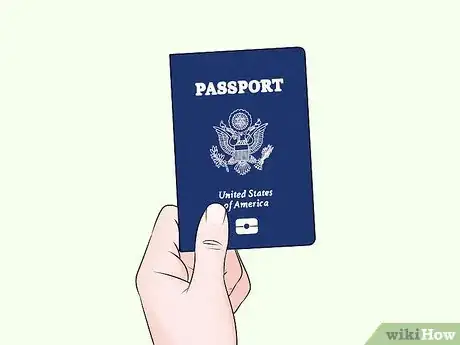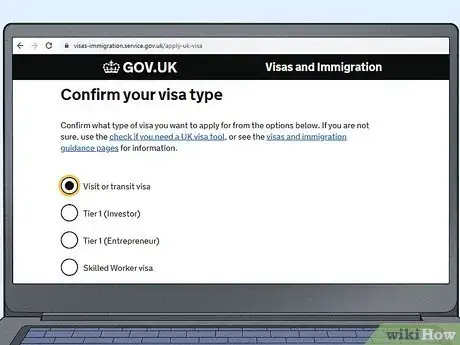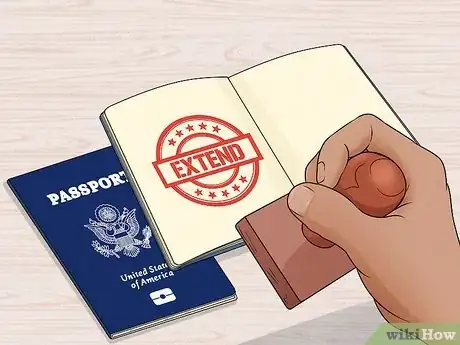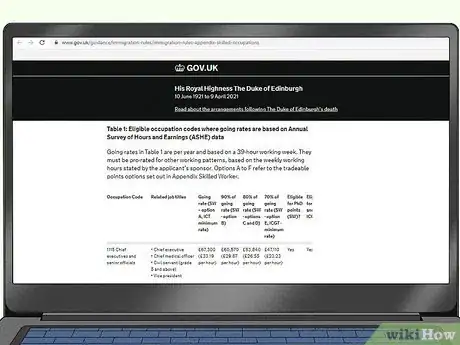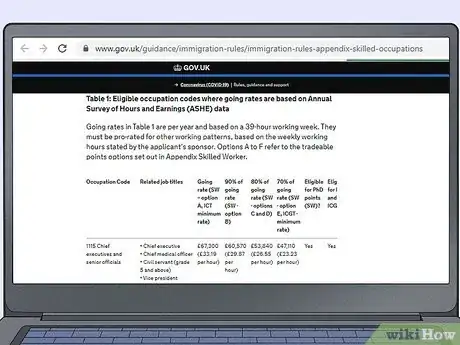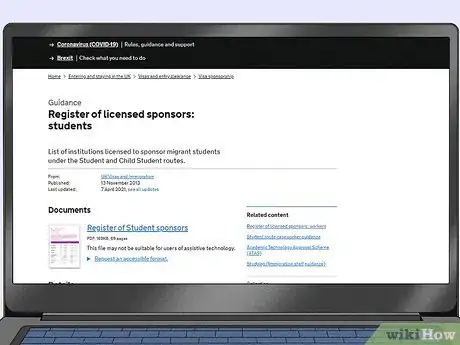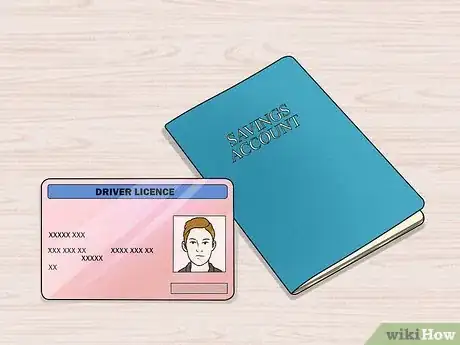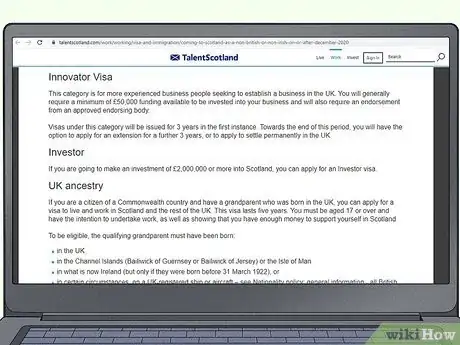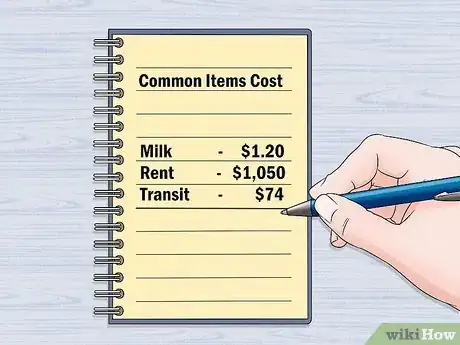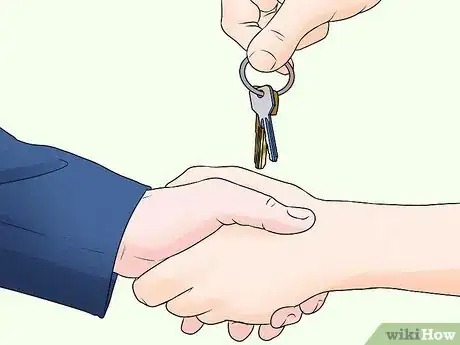This article was co-authored by wikiHow Staff. Our trained team of editors and researchers validate articles for accuracy and comprehensiveness. wikiHow's Content Management Team carefully monitors the work from our editorial staff to ensure that each article is backed by trusted research and meets our high quality standards.
There are 24 references cited in this article, which can be found at the bottom of the page.
This article has been viewed 11,133 times.
Learn more...
The highlands, the moors, the history, the music: Scotland punches well above its weight class when it comes to its global reputation. Since it is part of the UK, immigration to Scotland is controlled by UK policy. That means Brexit, special Commonwealth rules, and ongoing immigration reform can create quite a tangle. We'll help you wade through the weeds and find the best way to get you to Edinburgh, plus give you an idea of the cost of living.
Steps
Can US citizens move to Scotland?
-
1You can visit for six months without a visa. Just show your US passport upon arrival.[1] The official will stamp your passport with your entry date. This gives you permission to stay in the UK (including Scotland) for up to six months, or until you leave.
- Your passport must be valid for the duration of your intended stay in the UK.
- This policy is only for visitors, and won't allow you to get a job. Try this as a first step to network in Scotland and form a plan for moving. Telling the immigration officer you want to move to Scotland could get you denied entry.[2]
-
2Apply for a visa to allow for long-term stays and work rights. Start the application online at https://visas-immigration.service.gov.uk/product/uk-visit-visa, three months before you travel.[3] After receiving your reply, finish your application in person at a processing center.[4]
- You can find your local Application Support Centers at https://egov.uscis.gov/office-locator/#/asc. The alternative VFS locations are not recommended due to poor customer satisfaction.[5]
- See below for more information about types of visas.
Advertisement -
3Extend your visa until you meet the permanent residency requirements. Although a visa only lasts a certain number of years, Scotland will not kick you out automatically. Apply to extend your visa as the expiration date approaches, and you may be able to stay longer—or eventually, forever.
- You can usually extend a work visa if you have the same employer and occupation. In some cases, the minimum salary requirements may have changed since you first got the visa.[6]
- If you want to change jobs, apply to update your visa before you start working.[7]
- After 5 years living in the UK on a valid visa, apply for "indefinite leave to remain."[8] With that status, you are free to live in Scotland indefinitely without a visa, and can work in any job you like.
- Student visas (and some other visas that don't allow full-time work) don't give you the right to apply after 5 years. However, you can always apply after 10 years of legal residence of any kind[9] , or after 5 years as the spouse or civil partner of a permanent British resident.[10]
How do I qualify to move to Scotland for a job?
-
1You must have a job offer for "skilled" work. Look for work in Scotland in positions that require at least a secondary school diploma or equivalent.[11]
- If you are not sure if your field qualifies, look for it on the list of professions in Tables 1 and 2 at https://www.gov.uk/guidance/immigration-rules/immigration-rules-appendix-skilled-occupations.
-
2Check the minimum salary requirements. Generally, you need a salary offer of at least £25,600 to apply for a work visa to immigrate to Scotland. However, the new "points" based system is a bit complicated, and the actual number might be higher or lower:
- Your salary offer must be at least the typical pay ("going rate") for your field, listed at https://www.gov.uk/guidance/immigration-rules/immigration-rules-appendix-skilled-occupations.
- If you have a relevant PhD or work in an industry with a shortage of workers, the salary requirement can be lowered somewhat.[12]
-
3Stay employed for five years to stay in Scotland permanently. Your work visa might only last for a couple years, but you can apply to extend it each time the deadline approaches. Stay employed in the same job for five years (or get permission to update your visa before accepting a new job), and you can apply for "indefinite leave to remain."[13] You can then live indefinitely in Scotland (or anywhere in the UK) without a visa.
- The government may raise the minimum salary requirement for your job during your stay. You might need to meet this new requirement to extend this visa, but you'll have more leeway based on your specific circumstances than when you first applied.[14]
Can I immigrate to Scotland as a student?
-
1Apply to a Scottish school or university first. Once it accepts you, you can apply for a student visa.
- Double check whether the institution can sponsor your visa by looking for it on the list at https://www.gov.uk/government/publications/register-of-licensed-sponsors-students.
-
2Check work requirements. If you are working toward a university or graduate degree, you can work part-time during the term, and full-time during school holidays. Even if you aren't going to earn a degree, some student visas allow 10 hours of work per week.[15]
-
3Plan for after graduation. Starting in summer 2021, the UK plans to allow foreign students to remain for at least two years after getting a degree. You can find work during this time, and eventually apply for a work visa or permanent residency.[16]
Are there any other ways to qualify for a visa?
-
1You are a Commonwealth citizen with a UK grandparent. As long as your biological grandparent was born in the UK, and you are at least 17 years old, you can apply for a five year work visa.
-
2You are between 18 and 30 and from a place with a Youth Mobility arrangement. In that case, you can apply for a two year work visa.[19]
-
3You fall into some other category. The immigration policy has more exceptions and special visas, but most are extremely specific to certain situations. Here are a few of them that aren't restricted by country:
- You are an experienced businessperson with £50,000 of funding for your business idea.
- You are a "high potential" startup entrepreneur.
- You have notable talent and success in a field of academia, research, arts and culture, or digital technology.[22]
Is it expensive to live in Scotland?
-
1Scotland's cost of living is medium-high by European standards. Scotland is much cheaper than London or New York, but still far more expensive than most of southern or eastern Europe, let alone poorer parts of the globe.[23]
-
2Check the cost of some common items. These are only rough estimates, but they'll help you get a rough idea:[26]
- A liter of milk costs US$1.20. (That's about $1.06 a quart.)
- A month of rent in a one-bedroom apartment outside the city center might be $650–1,050 per month.
- A monthly public transit ticket costs about $74.
-
3
Can foreigners buy property in Scotland?
-
1You can buy Scottish properties without restriction. You do not need to be a resident or have a visa.[29]
-
2Gather at least 25% of the mortgage as a deposit. If you don't have a UK job and two years of residence status, you are required to pay this deposit to make up for your lack of local credit history. This type of mortgage is called "non-status" or "self-certification."[30]
Warnings
- The ongoing coronavirus pandemic adds many travel restrictions, and may change the details of your application process. (For example, some processing centers might be closed.) Allow plenty of extra time and check with local officials if you are planning on traveling before pandemic conditions end.⧼thumbs_response⧽
References
- ↑ https://travel.state.gov/content/travel/en/international-travel/International-Travel-Country-Information-Pages/UnitedKingdom.html
- ↑ https://www.freemovement.org.uk/there-is-no-180-day-rule-for-visitors-to-the-uk/
- ↑ https://www.gov.uk/apply-to-come-to-the-uk/prepare-your-application
- ↑ https://www.gov.uk/government/publications/usa-apply-for-a-uk-visa/apply-for-a-uk-visa-in-the-usa
- ↑ https://www.freemovement.org.uk/the-absolute-state-of-the-uk-visa-application-system/
- ↑ https://www.gov.uk/skilled-worker-visa/extend-your-visa
- ↑ https://www.gov.uk/skilled-worker-visa/update-your-visa-if-you-change-job-or-employer
- ↑ https://www.gov.uk/british-citizenship
- ↑ https://www.gov.uk/long-residence
- ↑ https://www.gov.uk/uk-family-visa/partner-spouse
- ↑ https://www.gov.uk/government/publications/uk-points-based-immigration-system-employer-information/the-uks-points-based-immigration-system-an-introduction-for-employers
- ↑ https://www.gov.uk/government/publications/uk-points-based-immigration-system-employer-information/the-uks-points-based-immigration-system-an-introduction-for-employers
- ↑ https://www.gov.uk/skilled-worker-visa/extend-your-visa
- ↑ https://www.gov.uk/skilled-worker-visa/extend-your-visa
- ↑ https://assets.publishing.service.gov.uk/government/uploads/system/uploads/attachment_data/file/949573/6.7031_HO_PBIS_Guidance_Re-Brand_Updates_Students_FINAL_WEB.pdf
- ↑ https://www.gov.uk/government/publications/uk-points-based-immigration-system-employer-information/the-uks-points-based-immigration-system-an-introduction-for-employers
- ↑ https://www.gov.uk/government/publications/common-travel-area-guidance
- ↑ https://www.dfa.ie/citizenship/
- ↑ https://www.gov.uk/government/publications/uk-points-based-immigration-system-employer-information/the-uks-points-based-immigration-system-an-introduction-for-employers
- ↑ https://www.gov.uk/youth-mobility/eligibility
- ↑ https://www.gov.uk/youth-mobility/eligibility
- ↑ https://www.gov.uk/global-talent
- ↑ https://www.expatistan.com/cost-of-living/index/europe
- ↑ https://abcfinance.co.uk/blog/the-true-cost-of-living-in-uk-cities/
- ↑ https://www.topuniversities.com/university-rankings-articles/qs-best-student-cities/10-cheapest-top-student-cities-uk-2018
- ↑ https://www.expatfinder.com/scotland/expat-guides/article/cost-of-living-in-scotland/1949
- ↑ https://www.talentscotland.com/live/living/information-about-living/cost-of-living
- ↑ https://www.gov.uk/national-minimum-wage-rates
- ↑ https://www.expatica.com/uk/housing/buying/buying-a-house-in-the-uk-103191/#Expats-property
- ↑ https://www.expatica.com/uk/housing/buying/your-guide-to-uk-mortgages-747470/
- ↑ https://www.freemovement.org.uk/there-is-no-180-day-rule-for-visitors-to-the-uk/
